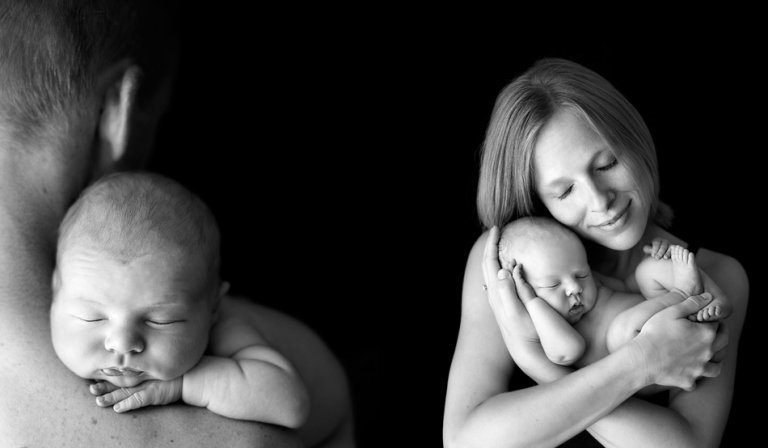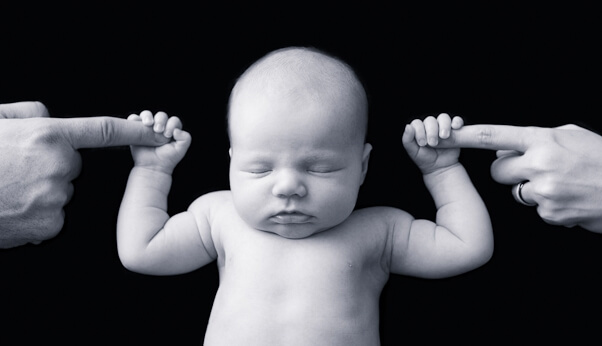Being a Parent Can Modify Your Brain


Written and verified by the psychologist Valeria Sabater
Having a child changes our lives. They renew our hopes, intensify our illusions and multiply our capacity to love by ten. However, did you know that having a baby changes parents’ brains in a spectacular way?
If there is something that we are accustomed to hearing and reading is that having a child changes a woman’s life. The first changes occur during pregnancy with the explosion of hormones. Then physical changes occur, and finally the early bond is formed with the little one growing inside of you.
In the same way, during the stage of breastfeeding – also bottle feeding – this bond is constructed between mother and child. The brain under the influence of a torrent of oxytocin intensifies the union between her and her child even more. However… what about dad? Is he on the sideline of all of this magic?
It’s high time that we included fathers in the essential upbringing of our little ones. The idea that “fathers only help” and that they should be limited to doing so must be scrapped. Fathers don’t only help. They are present and occupy vital affective territory. Moreover, he also experiences certain changes in his brain chemistry. These changes must be known…
Fathers, the closer the better

When it comes to fathers, the closer the better. They should always be beside mom and they should also enjoy their skin to skin contact with their child. They should also have their naps and baths with the baby.
The main point of this closeness is to strengthen the bonds with your children. According to a paper published in “Hormones and Behavior“, the more time that fathers spend with their partner and children, the more oxytocin is released in their brain. Just seeing a picture of their children is enough to create this reaction instantly.
It’s true, dads secrete oxytocin just like moms
As we all know, oxytocin is key to motherhood. It stimulates lactation and intensifies the need for affection, care and attention of mothers towards their children. This is something we already knew and have heard repeated over and over.
However, remember this important fact: Fathers release the same amount of oxytocin when they are with their babies as moms do.
“Isn’t it wonderful“
Fathers protect us and also read our emotions and needs

There is something that we are beginning to see more often in society: “stay-at-home dads.” These fathers choose to stay at home to raise their kids. In the same way, it is also clear that many fathers share almost the same workload and responsibilities as their partners do. Some fathers even choose single fatherhood by method of adoption.
- We know that fathers come in many different types. Yet if there is something that should remain clear, it’s that they have the same capacity for love and education. They establish affective bonds with their children that are as strong as those of mothers.
- In view of these new roles, there is something that scientists have been able to see, something defined as the evolution of parenthood. We have experienced a series of changes in our brains that help us raise our children with great efficiency.
- Scientists from Gonda University’s Multidisciplinary Brain Research Center in Israel have seen a significant increase in activity in the superior temporal sulcus in male brains. This implies that men have a greater aptitude for reading emotions, for identifying the needs of their children, and understanding their emotions. This inner world was once deemed solely the specialty of mothers.
6 percent of men suffer from postpartum depression
Postpartum depression is not an affectation that solely occurs in women. They do not gestate nor give birth, however they can experience a drop in dopamine from feeling isolated or left out from the process of parenthood.
If they don’t feel useful, if they don’t feel the closeness and don’t have an active role in raising their children, they can also develop depression. This is important to consider next time before saying something like “fathers don’t help.” They play a fundamental role in parenting; they also love, raise, feed and take care of children.
Let us take this into account and fully enjoy the wonderful miracle that is having a child together.
This text is provided for informational purposes only and does not replace consultation with a professional. If in doubt, consult your specialist.








